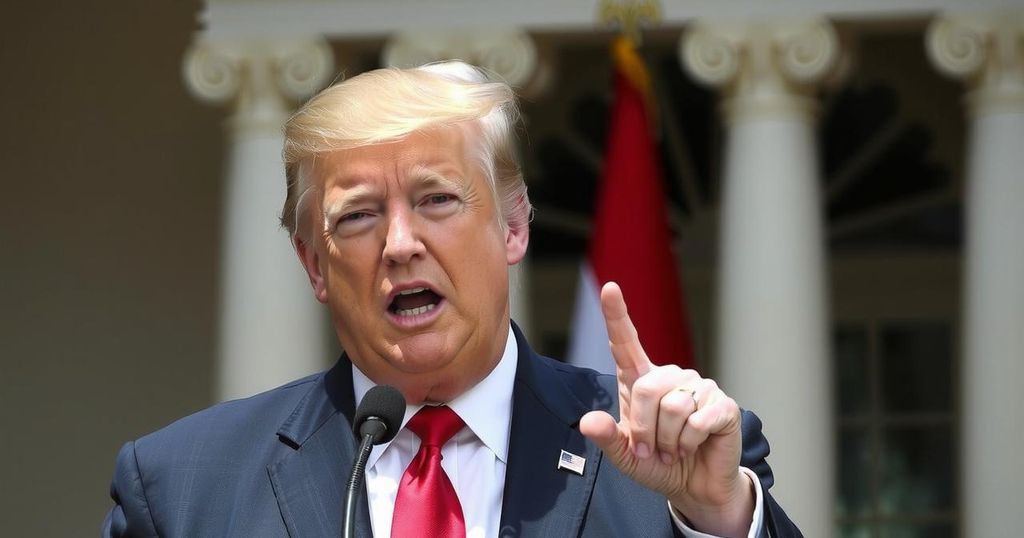Trump’s Non-Interventionist Stance on the Syrian Crisis

President-elect Donald J. Trump faces a significant crisis in Syria, where uncertainty prevails regarding U.S. involvement. Evidence suggests a possible hands-off approach, as Trump has criticized previous military interventions and expressed concerns about engaging with the Syrian conflict. His selection of Tulsi Gabbard for a prominent intelligence role further underlines a likely non-interventionist policy direction.
The President-elect Donald J. Trump is poised to confront a complex and dangerous crisis in Syria as he prepares to take office. The situation in Syria, marked by a prolonged civil war since 2011, presents a challenging landscape dominated by groups with ties to terrorism. It remains uncertain how Mr. Trump will navigate this crisis, particularly given his previous statements suggesting a non-interventionist stance, labeling Syria as a nation of “sand and death.”
In recent statements, Mr. Trump has expressed skepticism about U.S. involvement in Syria, calling it a “mess” and emphasizing that the United States “should have nothing to do with it.” His approach appears to align with the views of his Vice President-elect, JD Vance, who has likewise criticized past U.S. foreign policy interventions in the Middle East.
Moreover, Trump has indicated plans to appoint Tulsi Gabbard as his director of national intelligence. Gabbard, a former congresswoman, is known for her critical stance on U.S. military engagements in Syria, reinforcing the likelihood of a hands-off strategy moving forward. As the Trump administration prepares to take charge, the diverging opinions among his advisers and international leaders may shape the future course of U.S. involvement in the already tumultuous region.
The article discusses the impending crisis in Syria that President-elect Donald J. Trump will face upon taking office. Following the Syrian civil war that began in 2011, the power struggle has fostered a chaotic environment often associated with terrorism. Trump’s historical reluctance towards interventions in foreign conflicts positions him in a unique place, where his views may lead to a significant change in U.S. foreign policy regarding Syria. This environment is compounded by internal and external debates regarding political progression post-Assad, as well as potential influence from Trump’s key appointees.
In conclusion, President-elect Donald J. Trump’s approach to the crisis in Syria signals a potential shift towards a non-interventionist policy. His past statements and the selection of officials, like Tulsi Gabbard, who advocate for minimal U.S. involvement reflect a clear intention to distance the United States from the ongoing conflict. However, with varied opinions among advisers and the dynamic nature of international relations, the final approach remains to be seen.
Original Source: www.nytimes.com







